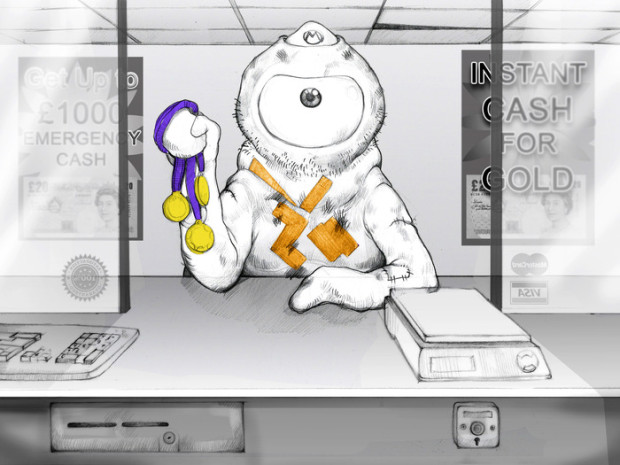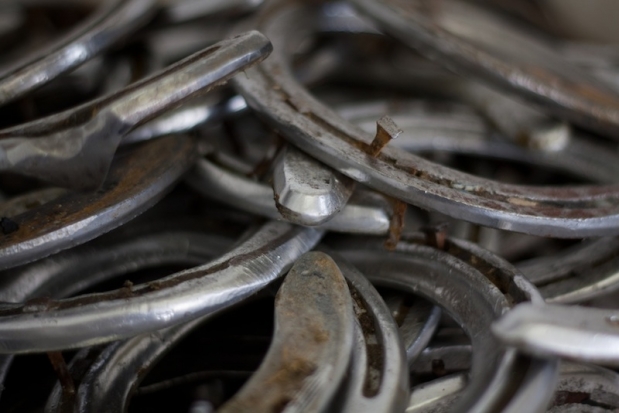
Flipping Nora Madcakes - this is proper rubbish!
After a manic six weeks, I'm finally taking a day off. It will involve Olympics-watching, novel-reading, and cake-baking. Whilst I'm lounging on the sofa, I shall leave you in Gareth's capable hands to tell you that you're a bad photographer, but it isn't as terrible and soul-crushing as you might think.
You'll be glad to hear that I'm not here to shamelessly plug something, or big myself up (I think that phrase went out of fashion in the mid-nineties), or to give you the bottom line on how to use a particular lens, or how you should photograph faces, or plants, or the sky, or... anything, actually. I'm not here to shove a project in your face, either (the next edition of that will be in a couple of weeks or so, I imagine).
I'm here to tell you that you are bad at photography.
You are a bad, bad photo person. Yes, I know that shot you posted got favourited twenty times on Flickr and you were invited to add your image to the group called "Baffling HDRs of Random Nonsense!", but you are bad at photography. I know that portait session with your friend was a lot of fun, and she loved all the images, and she put them up on Facebook where they got dozens of likes, but you are bad at photography.
You are bad at photography and so am I. Why do I say this? To be honest, I mainly say it to get a reaction out of you so you actually bother reading my nonsense (it's known as "The Tabloid Tactic"). Manipulative, I know. I imagine you are currently puce with pure, unbridled photo-rage, clawing and scratching at the screen with your bare hands, fingernails now bleeding, in the (utterly insane) belief that you can physically harm me via The Internet: you're shouting "I think you'll find I came third in The Guardian's Photo Competition last week, you ingrate! The theme was 'tranquility'! TRANQUILITY!", before breaking down and sobbing into your brunch. Which you just took an Instagram photo of. Tear-sodden Eggs Benedict.
Calm down, this is not a personal attack, I promise. What I'm really trying to say, or rather ask, is, what do we gain from considering ourselves "good" photographers? What use is there in looking at an image you've taken and thinking 'Yep. Maximum art achieved. I have mastered the art of photography, right there. Nothing left for me to learn'?
Here's where I get serious for a whole three sentences: I think "good" is a dangerous word in photography, because it lets you settle. You snuggle up in that comfy 'I'm good now' seat and you remain at that skill level; in short, you stagnate creatively.
I know it's not nice, but it's necessary: critique, both self and from others, is what improves our images. If there's one thing you should do to every photograph that you take, it's to evaluate it. It should be noted, however, that it is very possible to go too far the other way: maintaining a healthy balance is the key. Instead of saying 'This photo is great,' I tend to go with 'I'm happy with this shot.' Similarly, it's better to identify what you could have done better with a photo you're not happy with, as opposed to sitting, head in hands, wailing uncontrollably because your subject isn't quite on the rule of thirds. Not that I've ever done this. Nope.
So where the piggles do I get such critique, I hear you collectively ask? Well, I happen to know that Daniela is turning her attentions to this very question in the not-too-distant future, but until then, one place to get some useful feedback is on DPChallenge. It's a good place to begin, but my personal advice would be to take critiques with a pinch of salt – the members of DPChallenge tend to be very focused on technical elements of critique. This certainly isn't an awful thing to focus on, but there will come a time where you are much more comfortable with the technical basics and you want to experiment with rule breaking. It all depends on your current skill level, really, but you'll definitely learn a thing or two, regardless of experience.
Immerse yourself in as much critique as possible – look at images that you really like on the site, images that you think are stunning and you feel a million miles away from, ability-wise. Now have a look at the critiques and what people think the photographer could have done better. The more critique you read, the better you will get at critiquing images yourself, including your own. Hey, look: you're getting better! Soon you'll be looking at work you create six months ago and thinking 'I can't believe all the mistakes there are in that photo – what a load of rubbish!' You see that? That's progress.
Here's your homework, then: get some proper, constructive feedback and critique on your work and learn something from the experience. It's daunting at first, but take it on the chin and keep working at getting better. Not "good", not "great", just better.









